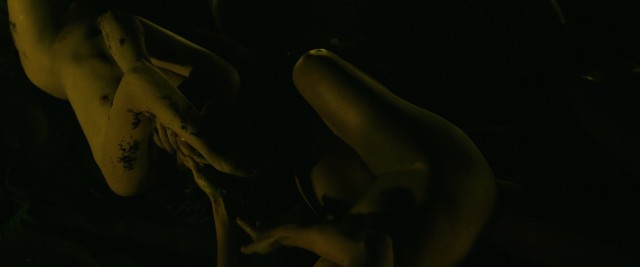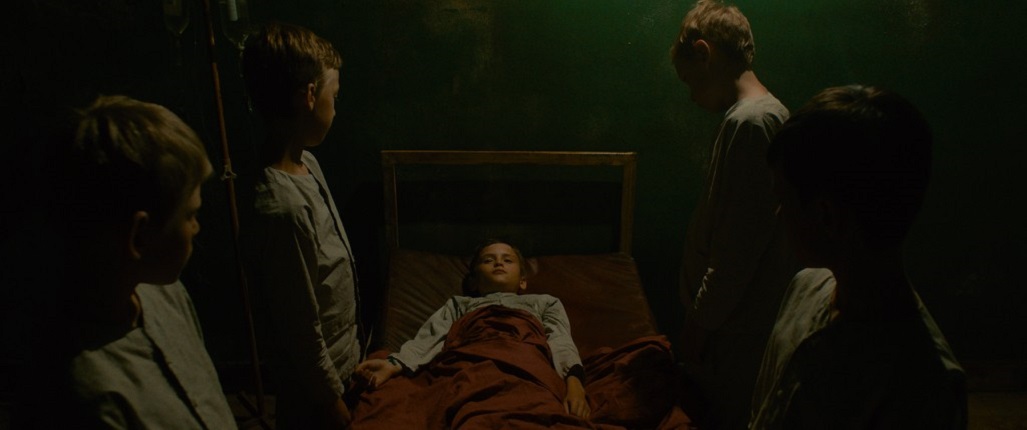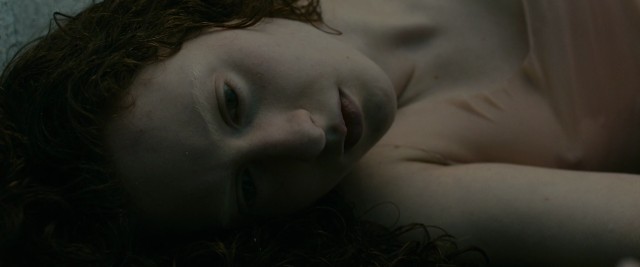Evolution (2015) is an enigmatic, beautiful, subtly disturbing film from director Lucile Hadžihalilović, her first feature-length title since Innocence in 2004. It belongs in both the horror and science fiction categories, but it isn’t confined within those genres and I wouldn’t classify it under either of those. Visually striking without being ostentatious, it has a lot of impressive atmosphere. It is not at all lavish, but everything about its visual design is so memorable, from the stark, simple, whitewashed, cube-like buildings, to the slightly decayed, peeling green walls of the hospital. It is very minimalist, managing to feel austere and dreamy at the same time – everything about it is elegant, purposeful, and careful. It has a certain purity. I feel like there is nothing superfluous in it, not a single scene, gesture, or facial expression wasted.
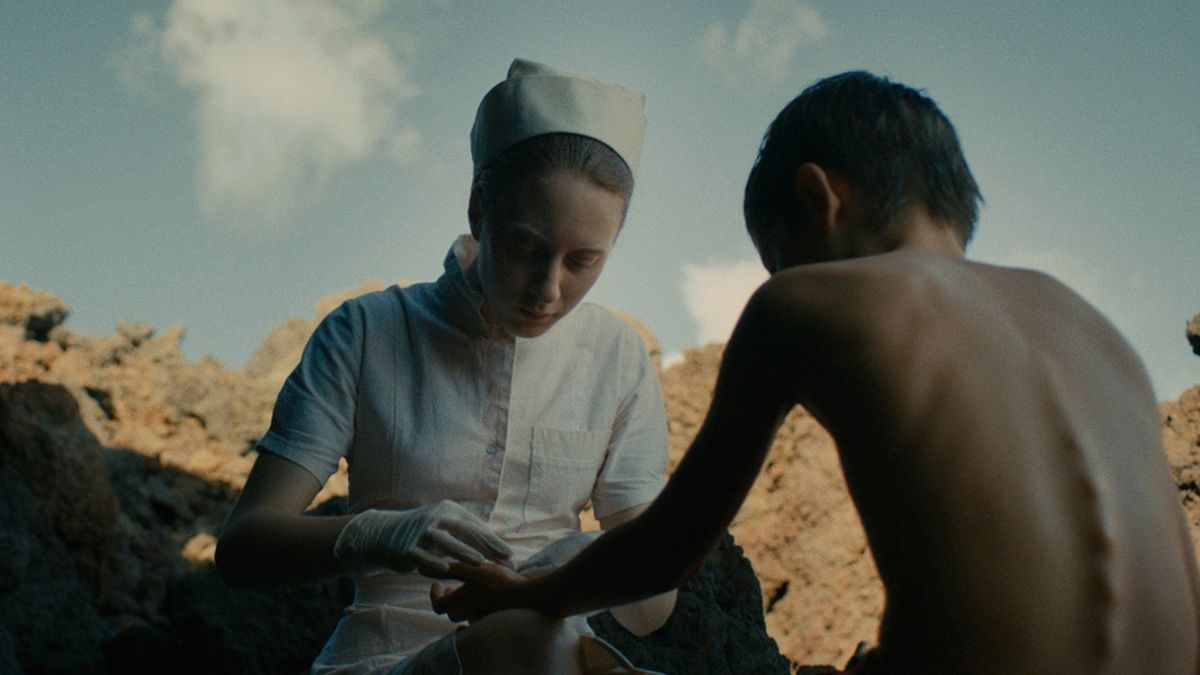
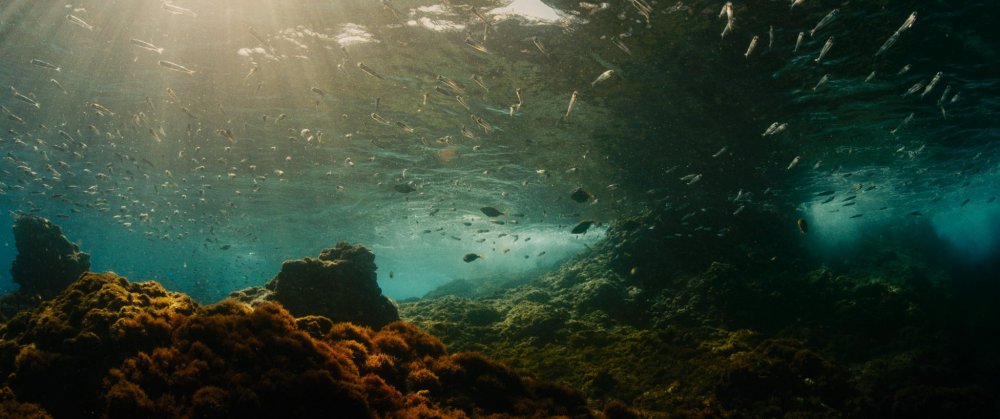
It is hard to say exactly what this film is “about.” It takes place in a remote seaside village, which seems utterly deserted except for a group of preadolescent boys and the grown women who look after them. The strangeness of their mode of existence is gradually revealed, as we see how the women regulate the boys’ lives with a gentle severity and subject them to mysterious medical treatments and procedures. The “nurses” remind me in a vague way of subtly sinister mermaids with an abysmal secret – at once menacing and nurturing. What initially seems like a strict, simple, but rather peaceful lifestyle unfolds more and more of its incomprehensible cruelty.
The story starts out with the main character, Nicolas, claiming to have seen a boy’s corpse in the water with a starfish on its stomach. The woman who is supposed to be his mother dives in and brings the starfish back to him, but denies that there was any body. Nicolas is fascinated and disturbed by the red starfish (the figure of the starfish is a recurring symbolic image throughout), and ends up crushing one of its arms with a rock. After this ominous event, he shows growing curiosity about the cryptic, unexplained life in the small community, the treatments that he is compelled to undergo by his “mother” and the nurses, and becomes more resistant to their wishes. On the other hand, he is drawn towards Stella, a sympathetic nurse with the gentle, melancholy face of a Renaissance painting who shows a particular tenderness towards him, and their special connection, though never quite illuminated, is further developed throughout the movie.
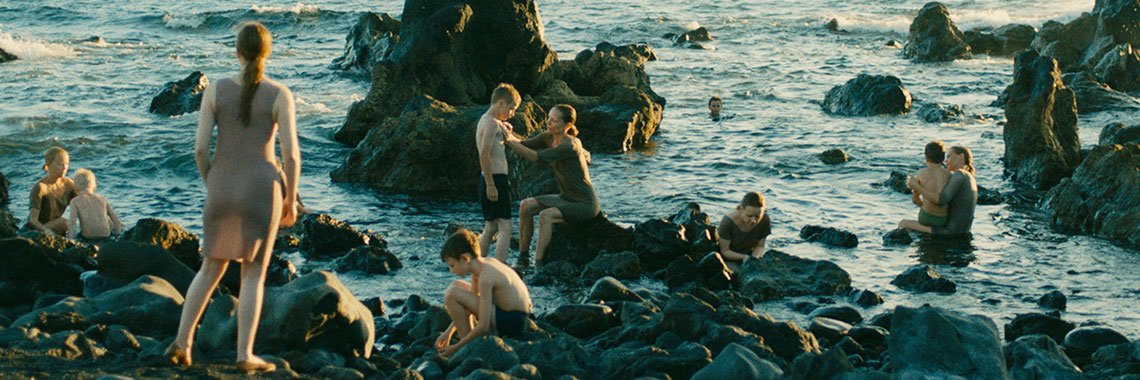
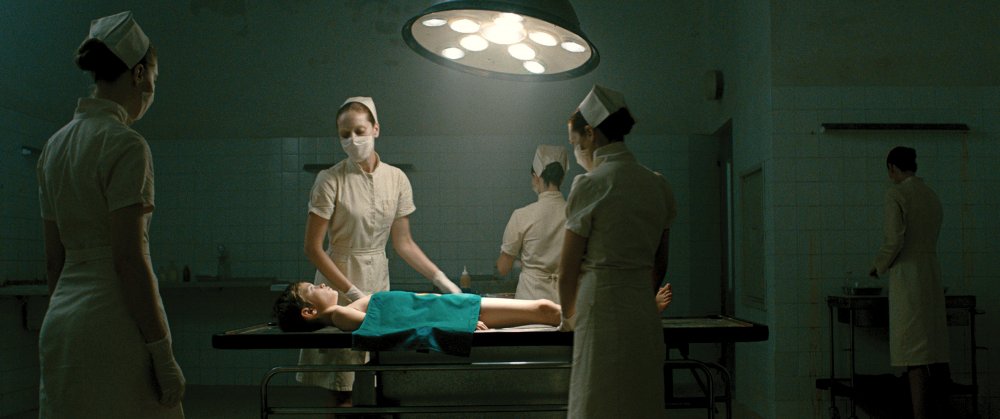
The ending is poetic and ambiguous, even more mysterious than everything preceding. It remains an enigma, full of possible interpretations and lingering atmosphere. The symbolism is clearly about transformation, rebirth, and change, perhaps against one’s will, but the particulars and the deeper ramifications of this are not unraveled in the film itself. It does not analyze itself. It is a beautiful vision of another world, with strange veiled transpirings, symbols, and meanings, presented in a style that is spare but not without beauty. The mystery at its core is never really revealed, and the narrative is not easily understood or explained. Evolution is a film that seems destined to be more obscure than it should be because of its opacity and controversial subject matter, but it is so lovely and atmospheric, evocative and thought-provoking; one of the most interesting, effective movies I have seen recently.
